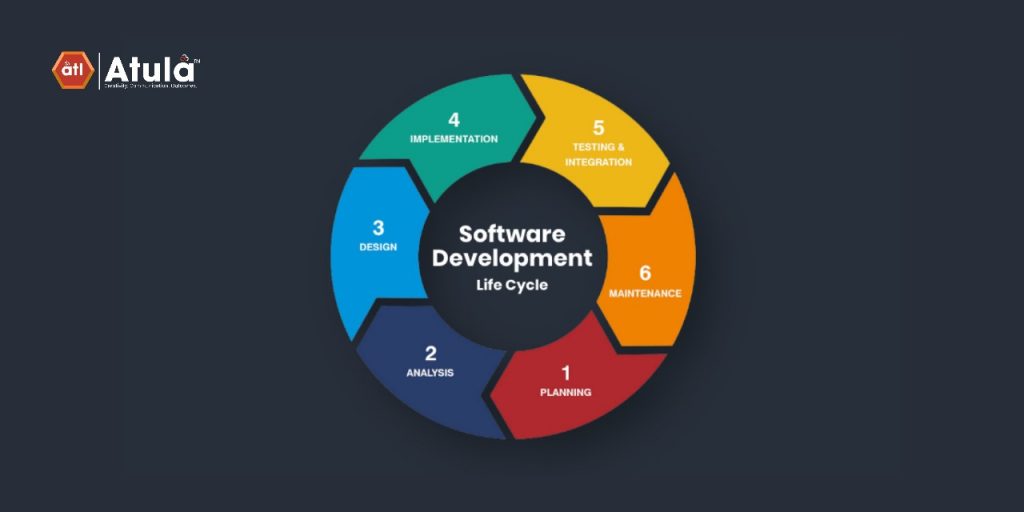The bespoke software development life cycle involves several phases, each crucial for delivering a successful and tailored solution. Here are best practices for each phase which we follow diligently at Atula Technologies:
Requirements Analysis:
- User-Centric Approach: Prioritize understanding end-users and stakeholders, ensuring that requirements align with their needs.
- Clear and Measurable Requirements: Define clear, concise, and measurable requirements to avoid ambiguity.
Planning:
- Detailed Project Plan: Develop a detailed project plan outlining timelines, milestones, and resource allocation.
- Risk Management: Identify potential risks and establish mitigation strategies to address uncertainties.
Design:
- User-Centered Design: Adopt a user-centered design approach to ensure the software meets user expectations.
- Scalability and Flexibility: Design for scalability and flexibility to accommodate future changes and growth.
Implementation (Coding):
- Coding Standards: Adhere to coding standards to ensure consistency, readability, and maintainability of the code.
- Code Reviews: Implement regular code reviews to identify and address issues early in the bespoke software development process.
Testing:
- Comprehensive Testing: Conduct thorough testing, including unit, integration, system, and acceptance testing, to ensure software quality.
- Automated Testing: Implement automated testing to streamline the testing process and catch regressions efficiently.
Deployment:
- Rollback Plan: Establish a rollback plan in case issues arise during deployment, ensuring a smooth transition back to the previous state.
- Monitoring and Logging: Implement monitoring and logging to track system behaviour post-deployment and identify any anomalies.
Maintenance and Support:
- Proactive Issue Resolution: Address issues proactively, considering user feedback and monitoring system performance.
- Regular Updates: Provide regular updates and enhancements to keep the software aligned with changing requirements.
Security:
- Secure Coding Practices: Follow secure coding practices to minimize vulnerabilities.
- Regular Security Audits: Conduct regular security audits to identify and address potential security risks.
Documentation:
Comprehensive Documentation: Maintain comprehensive documentation, including user manuals, technical documentation, and code comments.
Version Control: Utilize version control systems for tracking changes and facilitating collaboration among developers.
Collaboration and Communication:
- Effective Communication: Foster open communication among team members, stakeholders, and end-users throughout the bespoke software development life cycle.
- Agile Principles: Embrace agile principles, allowing for flexibility and adaptability in response to changing requirements.
Client Involvement:
- Regular Client Engagement: Keep clients involved throughout the bespoke software development process, seeking feedback and validation at key milestones.
- Expectation Management: Set realistic expectations regarding timelines, features, and deliverables to manage client expectations effectively.
Continuous Improvement:
- Retrospectives: Conduct retrospectives at the end of each phase or project to identify areas for improvement and implement lessons learned.
- Adopt New Technologies: Stay informed about and adopt new technologies and methodologies that can enhance the bespoke software development process.
By incorporating these best practices across the bespoke software development life cycle, teams can ensure a systematic and effective approach to delivering high-quality, customized solutions that meet the unique needs of clients and end-users.
If you are looking to develop a new bespoke software, tell us more at [email protected]

